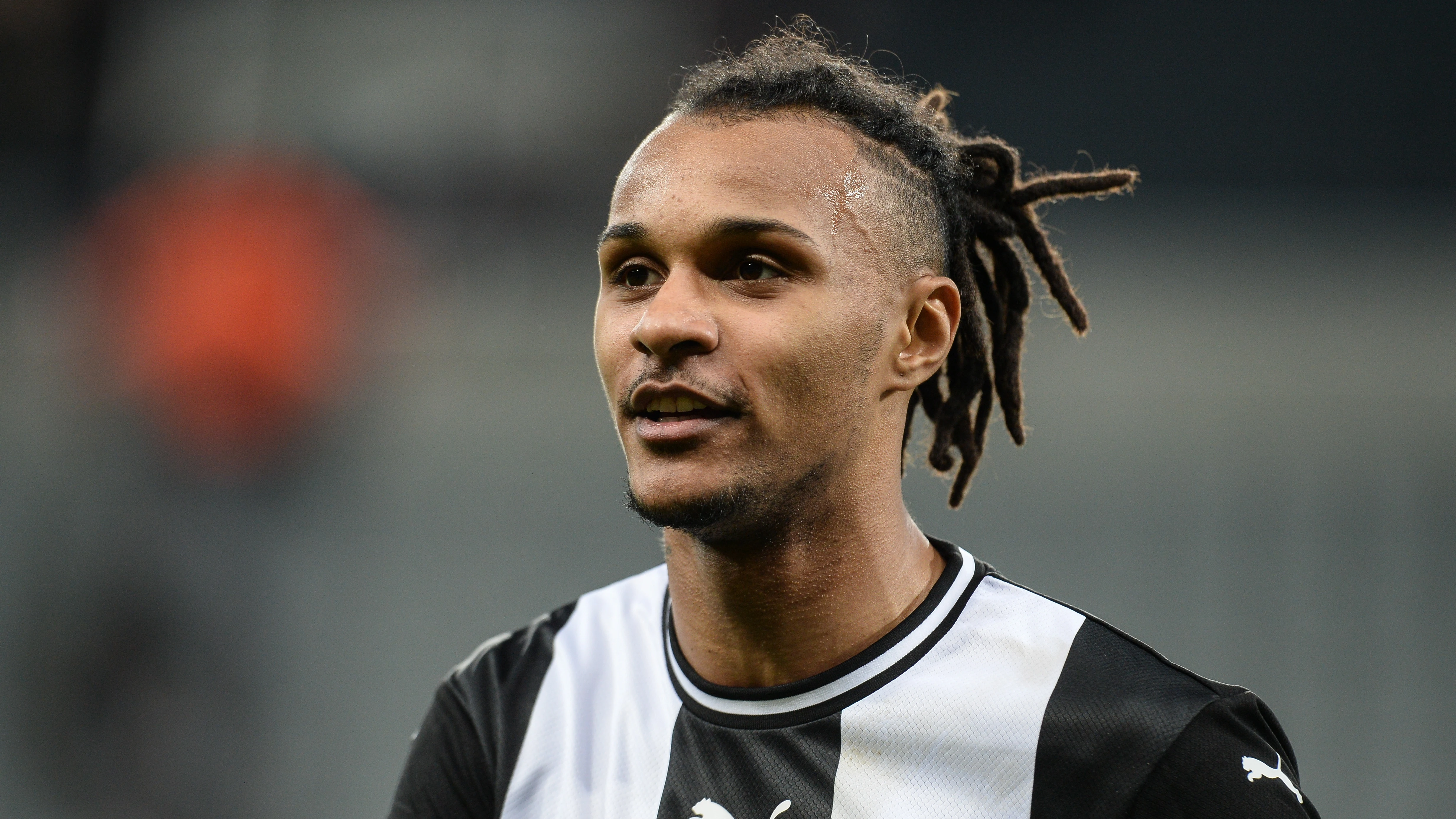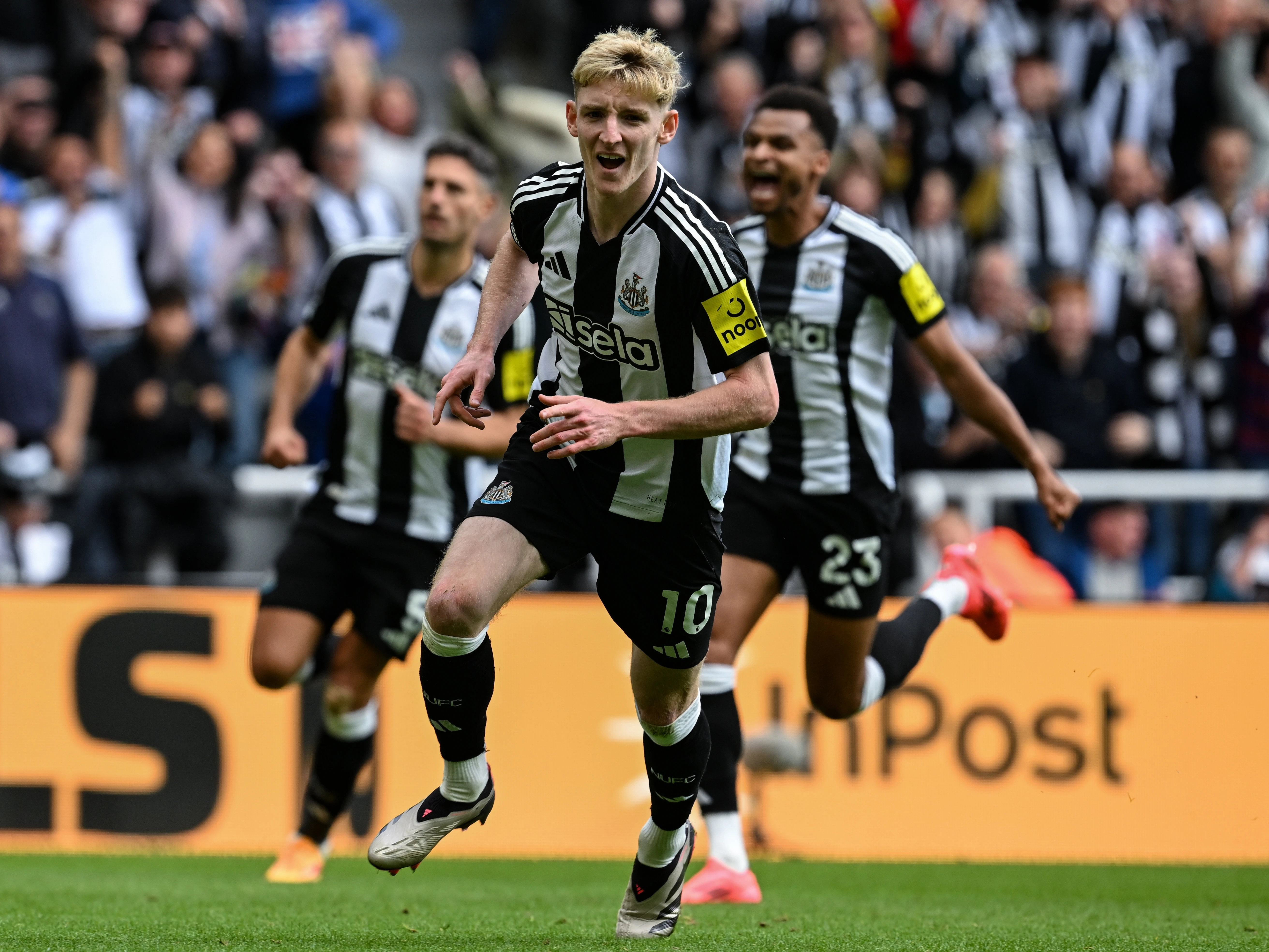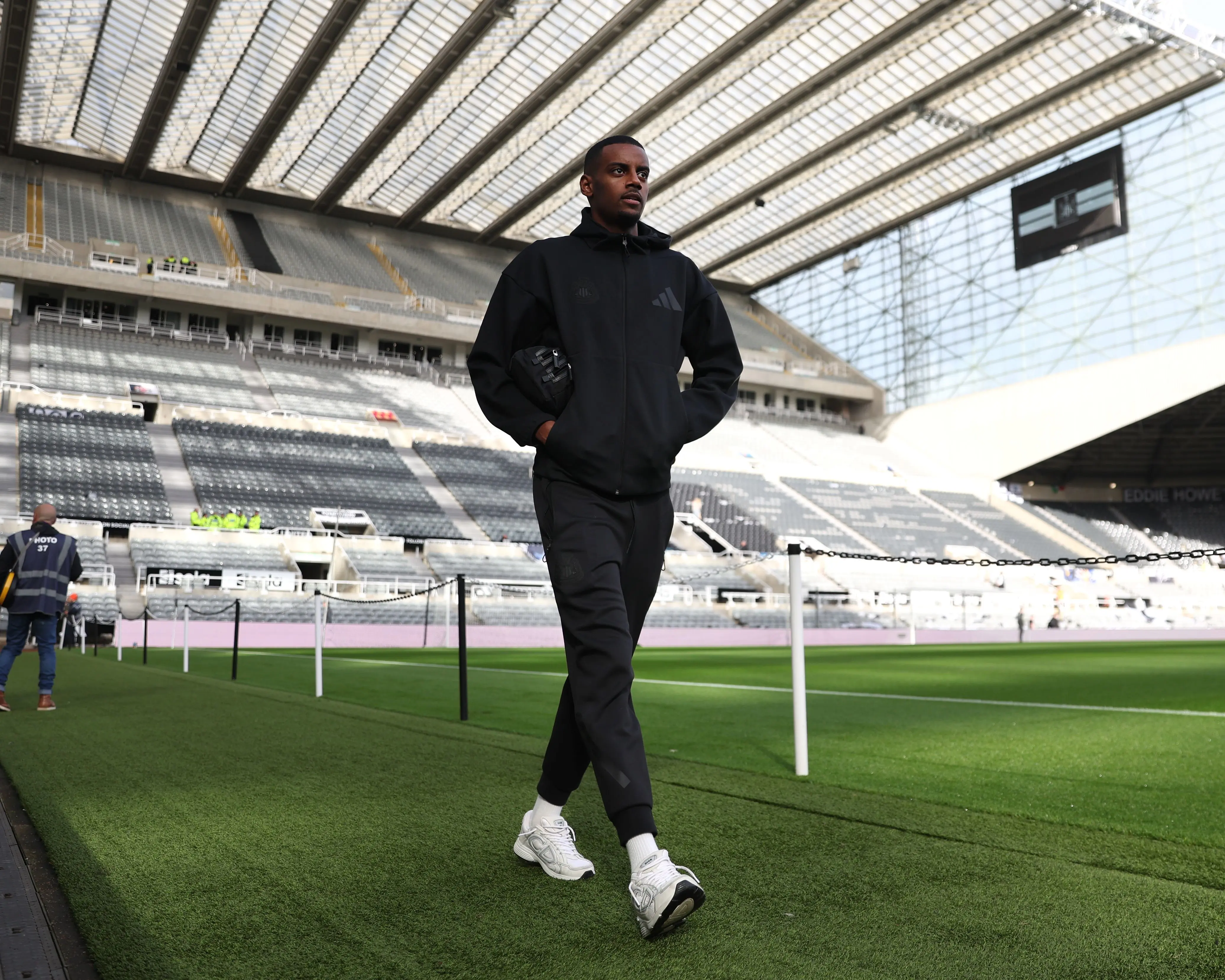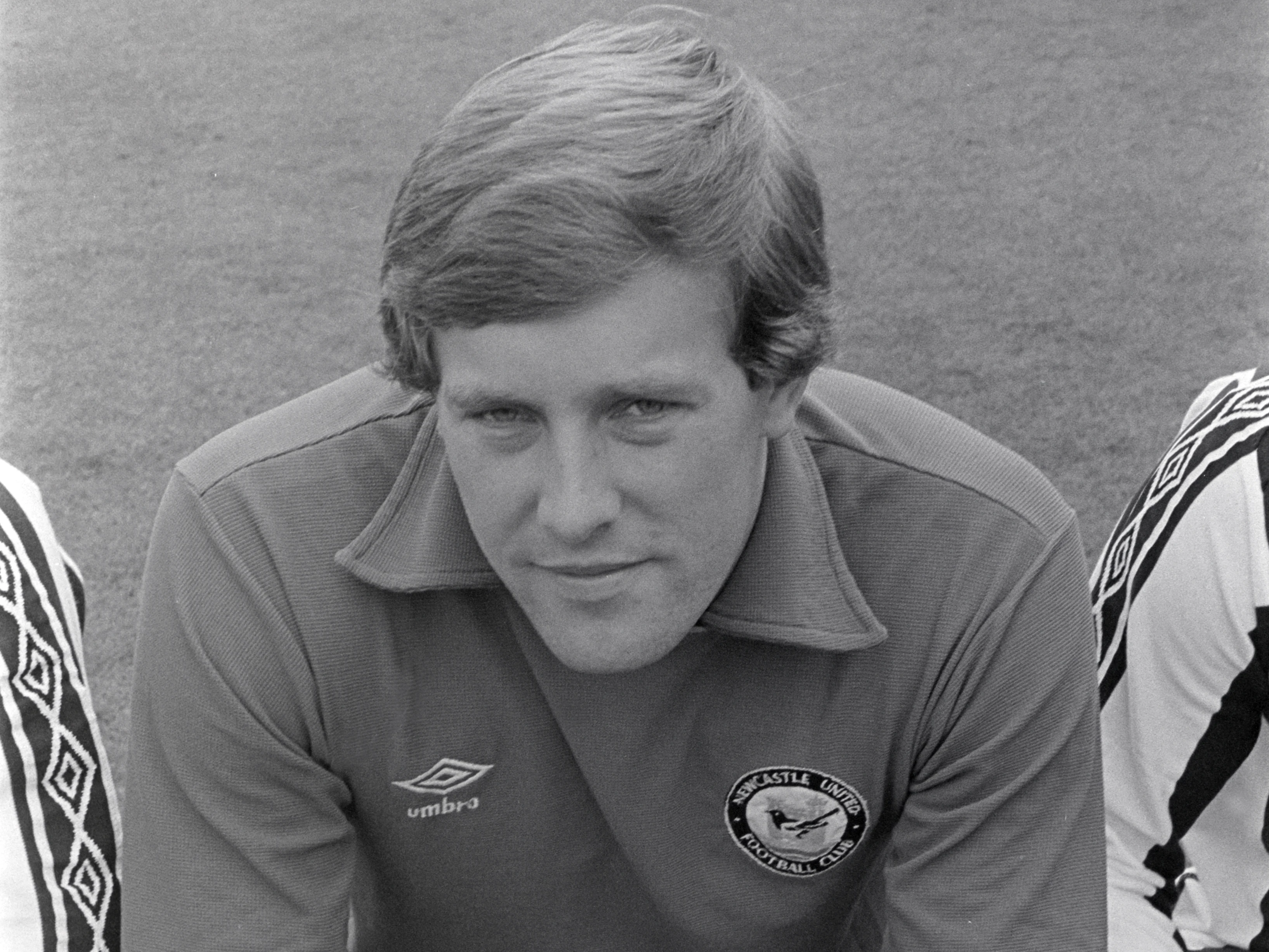There is a photo of Valentino Lazaro, perched on a wall by the Quayside with the Millennium Bridge’s blue and pink glow on a biting March night behind him, on his Instagram account. He wears the same black hoody as in the image, pulled up over his dark dreadlocked hair, as he considers his most recent post. "I thought it was a nice place to take a picture. You can see a bit from the city – you really know it’s Newcastle," says the 23-year-old. “I was always a big city kid – I loved to live in the city. I lived directly in the city, next to a football pitch. Everything was very close – school, the city centre, and football. I just think I'll never be like a country guy – I need some action around me, the city noises.”
To a young man who has rarely shied away from change, his new surrounds have their own unique feel. Tyneside is something different for Lazaro, a place he says "has its charm" and is a contrast to the bustle of Milan and the comparative tranquillity of Salzburg, but the winger was shaped in his hometown of Graz.
His father, Pedro, is Angolan and his mother, Bettina, is Greek. "A crazy mix," laughs Lazaro. "I grew up in a neighbourhood with a lot of different cultures. One of my best friends when I was growing up was from Turkey, and another one was from Germany. I was born in Austria with a Greek background and I have Bosnian friends.
"We were just all the same, just kids having fun. That's the mentality that I grew up with so, to me, everybody's basically the same. I definitely learned that I have an African side of me, and I also have that Austrian and that very – how do you say? – strict and organised life in me, which is totally not African or Greek. But I can definitely say I enjoy taking my time sometimes – that's maybe my Greek side and I like, of course, the sunny weather. Overall, I'm very happy with that mix. I think it's something special."
Lazaro exudes cool but his intelligence is obvious as he sketches a varied and somewhat independent childhood. Pedro worked for a local newspaper in Graz but coached football in his spare time, taking Valentino along to train with his under-sevens group at just three years old. Lazaro has two sisters and two half-brothers and recalls, with some reluctance, a period when Bettina fell ill. “It was a hard time back then, I remember,” he pauses. “So we already, as kids, really felt responsible to take care of the family.”
There is a maturity about him that can perhaps be traced back to his upbringing in Graz and his early leap into adult life. Lazaro left home at 13 to join Red Bull Salzburg and made his Austrian Bundesliga debut at just 16, breaking into a team containing Sadio Mané while still at school. At that age, “you don't think, ‘this is actually a job and so much money is involved and the pressure and everything’ – you just go out there and play. The coaches quickly told me, ‘actually, yeah, you're only 16, but we have the biggest game in the league right now and we want you to start because you're in good form’. I didn't really think about that a lot.”
It wasn’t until a foot injury sidelined him for a chunk of that 2012/13 season that he began to realise where the path might lead, “and it's just, of course, something that you have to mature in,” he adds, in perfect English. “And plus, you are only with people that are much older than you. I remember back then we had players from 25 and upwards so I was just hanging out with them every day, seeing how they just handle life. I think I've had my youth… not taken away, but I've been through that pretty quickly and early on so I think at already 18, 19, 20 years old, I was a bit further in my head than other people my age.”
Lazaro speaks German, Italian, English and a bit of French, Spanish and Greek. He has a curiosity about life that is not all that common in the modern-day footballer; it is a trait he seems to have nurtured himself. It came in handy at Salzburg. “We had so many nationalities in our team,” he says. “I just learned and heard it in the locker room, and kept talking to them. I think in my opinion the best player I ever played with there was Jonathan Soriano, who came from Barcelona. He just spoke Spanish when he came, and we just always had a good connection, even though we couldn't really speak. That's how you learn – just to communicate with each other and learn a lot about the other language.
"I've always been like that. It's just really fun. I think it’s helped me as well for example if I go on vacation to another country and meet people, and to then just be able to communicate… all my friends say, ‘how did you start to learn Italian or Spanish?’ or, ‘how do you understand it?’,” he chuckles. “I don't know! I just heard it over the years, and it's just fun that you can communicate with people with different backgrounds.”
The 28-cap international was borrowed from Inter Milan in January and reveals how, in his mid-teens, he had agreed to join the Nerazzuri before his breakthrough at Salzburg. After being persuaded to remain in Austria by Roger Schmidt and Ralf Rangnick, he eventually made the move to Italy – via Hertha Berlin – last summer. That must have been a strange, déjà vu kind of feeling? “It was,” he smiles, “because there are actually still the same people working (at Inter Milan), and they remember the first time I went there. They said, ‘we still have your contract out from way back then, seven years ago!’ We were laughing about that.”
There is an intense kind of scrutiny applied to those who represent an institution so dripping in history and so significant in a city and country’s sporting history, but Lazaro – who has an idea of what it means to be a player in 2020 – feels he is capable of handling it. “In the world nowadays that we live in, everybody can give an opinion,” he shrugs, “and you as a football player just have to be an extension of that, and just keep going.”
His first month or so at St. James’ Park has not passed without its troubles. A first start in the 4-0 defeat at Arsenal was followed by a straight red card at the end of what was a promising individual display in the miserable 1-0 reverse at Crystal Palace.
“When I came here, I felt the support not just from the fans (but) from my teammates and from the coaches as well,” says Lazaro, who has made five outings in black and white since his arrival. “And I actually think I had a pretty good start here in training with my team, but then of course the first games came and we didn't win. Then I had the red card.
“I think I had a pretty good game as well until the red card. Then to not be able to play the next week at home was a bit tough, and now I'm more than happy to be back.”
A first goal in English football arrived in the 3-2 FA Cup win at West Bromwich Albion last week. It proved to be the winner, and the scrappiness of the strike – a bundled shunt of a finish, which appeared to strike his arm – amuses him. “It was definitely not in the best goal,” he smiles, “but sometimes you just have to make the run and just be there. That’s what happened and, in the end, it came out important because we still conceded two goals. I was very happy after that game.”
A loanee’s future is always precarious but Lazaro insists his focus remains squarely on the here and now, at what is a key crossroads in the Magpies’ campaign. He is quite an impressive speaker and you would imagine, should he retain the same hunger for the sport as he has for life and all its varieties, there may be a rewarding career or two ahead of him.
“I've had a lot of questions about summer already,” he says. “But what I can say is that I'm fully focused here – I wouldn't have come here if I wouldn't be committed to the club. I'm happy to be here, and just focus on that.
“I'm not really thinking about just my own future right now. I want to help the club achieve their goals and, of course, show myself as well.”




